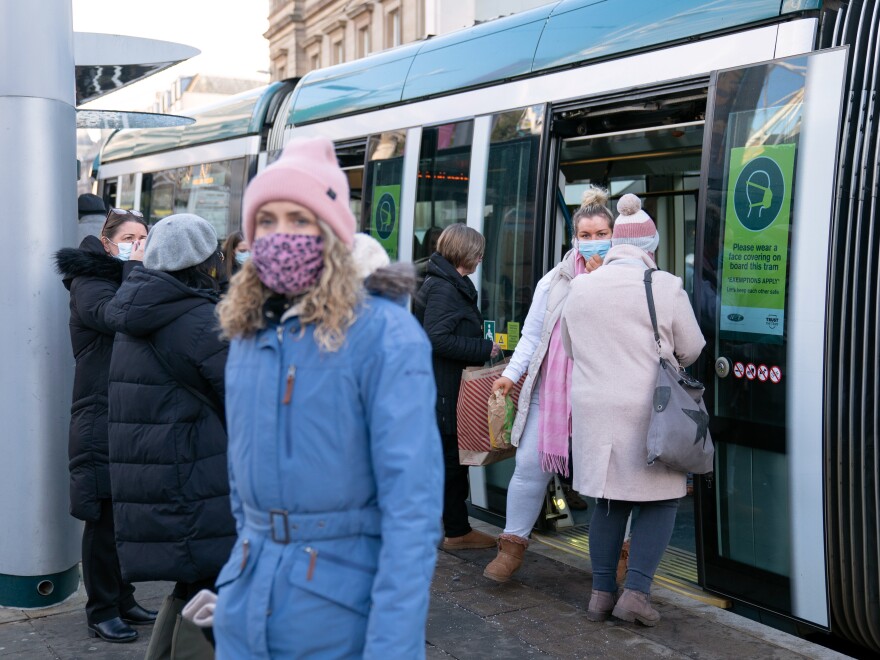The World Health Organization is warning that the new omicron variant of the coronavirus poses a "very high" global risk because of the possibility that it spreads more easily and might resist vaccines and immunity in people who were infected with previous strains.
In a technical brief issued Sunday, the WHO warned its 194 member states that the new variant's numerous mutations "may confer immune escape potential and possibly transmissibility advantage," and as a result "the likelihood of potential further spread of omicron at the global level is high."
It says that the risk to vulnerable populations — especially in countries with low vaccination rates — could be "substantial."
However, it cautions that there's still considerable uncertainty about the virus, including how easily it spreads, how dangerous it is, whether it can evade vaccines and immunity, how it responds to diagnostic tests and therapeutics, and even its specific symptoms.
"The vaccines were designed, basically, to keep people out of hospital, and they've stood up and they've done that very well," Dr. Margaret Harris, a public health doctor and WHO spokesperson, told NPR's Morning Edition on Monday. "So we really need to know whether this particular version is going to change that picture."
The omicron variant was first reported last week in South Africa, where infections attributed to the new strain have risen sharply in recent days. Since then, it has been found in more than a dozen countries, including Botswana, the United Kingdom, Germany, Belgium, the Czech Republic, Israel, Australia and Hong Kong.
So far, there have been no reported deaths linked to the omicron variant. Meanwhile, many countries including the U.S. have reimposed some travel restrictions in an effort to stem the spread of the new variant.
The Centers for Disease Control and Prevention has yet to announce any omicron cases in the U.S., though the White House chief medical adviser, Dr. Anthony Fauci has said that he believes it's inevitable at some point.
In response to omicron, the CDC on Monday strengthened and simplified its advice on who should get a COVID-19 vaccine booster.
"Everyone ages 18 and older should get a booster shot either when they are 6 months after their initial Pfizer or Moderna series or 2 months after their initial J&J vaccine," CDC Director Rochelle Walensky said in an statement.
This replaces guidance that said people ages 18 and older but younger than 50 may receive a booster and others in certain at-risk categories or 50 and older should get a booster.
The WHO on Sunday warned of possible "future surges of COVID-19, which could have severe consequences, depending on a number of factors including where surges may take place."
The brief advises nations to enhance surveillance and sequencing efforts and accelerate COVID-19 vaccination coverage. It also advises renewed social distancing restrictions and contact tracing.
"In anticipation of increased COVID-19 caseloads and associated pressure on the health system, ensure mitigation plans are in place to maintain essential health services and necessary health care resources are in place to respond to potential surges," it advises.
Speaking on Monday, the WHO Director-General Tedros Adhanom Ghebreyesus said: "Global health security is too important to be left to chance, or goodwill, or shifting geopolitical currents, or the vested interests of companies and shareholders."
"Omicron demonstrates just why the world needs a new accord on pandemics," he said, noting that the new variant's emergence shows how "perilous and precarious" the current situation is.
Copyright 2021 NPR. To see more, visit https://www.npr.org.








